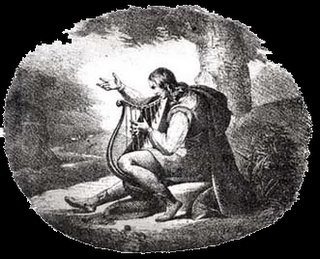This is a homily from Tim Gombis. He read this a while ago at the Red Brick Church, Springfield Ohio.

God, Who Forgives
Isaiah 43:18-25
2 Corinthians 1:18-22
Mark 2:1-12
Psalm 32 or 32:1-8
 Our texts for this week reveal to us the logic of God's forgiveness. They also reveal to us our own ways with forgiveness and perhaps why we have such a hard time coming to grips with God's outrageous grace. These texts serve as a pleasant and stunning surprise, a blessed rebuke.
Our texts for this week reveal to us the logic of God's forgiveness. They also reveal to us our own ways with forgiveness and perhaps why we have such a hard time coming to grips with God's outrageous grace. These texts serve as a pleasant and stunning surprise, a blessed rebuke.
We foolishly think that we have God all figured out, don't we? We think that we know how He deals with sinners, what He's like, how He thinks. What is God like? Well, He's mostly like us, except totally huge, and He knows everything. And He told us what is right and wrong, so if we choose to do wrong, He'll be rightly outraged at us - because He told us not to do it, and we should've known better.
But, thankfully, He has made a way for us to be forgiven, and if we're willing to clean up our act, make things right, He's willing to consider taking us back. But He'll keep His eye on us, and if we blow it again..., well, we might want to read the fine print in our contract.
We may not lay out our understanding of God so explicitly, but we often feel that this is what God is like, right? He's very huge and powerful, and his heart isn't as small as that of the Grinch who stole Christmas - whose heart was two sizes too small - but surely it's not THAT big - after all, there's gotta be some limit to forgiveness and grace.
In thinking about God in this way, we have managed to become complete idolaters; we have made God in our own image. What is He like? What's His forgiveness like? Probably like ours.
Scripture, however, turns this idolatry on its head, giving us a true glimpse into the ways of God with His people. We will discover what these texts tell us about the forgiveness of God by asking and answering three questions.
First, why does God forgive sins? Because this is who He is! It is His identity, according to the final verse in our Isaiah passage: "I, I am He who blots out your transgressions for my own sake, and I will not remember your sins." It is who God is, it is what He does - it's His calling card; He forgives sins!
And He loves to forgive! Our Isaiah text depicts God going to great lengths to overcome our sin and to arrange situations in such a way so that we might more effectively enjoy His love. In fact, what makes God angry in the Isaiah passage, is that Israel refused to give God opportunities to forgive. "Yet you did not call upon me, O Jacob; but you have been weary of me, O Israel!"
So God forgives because it is his very nature to do so - and he DELIGHTS to forgive sinners.
These texts force us to ask a second question: Is this really so? How can we be sure about this? Does he really love to forgive, or does He do it dragging His feet? When God forgives sins, does he do it while rolling his eyes?
And we want to know, because this is how WE forgive, isn't it? "Well, I know I'm supposed to forgive you, so I guess I do. But I don't have to like it!! And I don't have to like you!! I'm still angry for what you've done to me, so you need to spend a few more days in the doghouse until you get completely back in my favor."
And we think that by holding on to bitterness against those who have wronged us we're only showing proper righteous anger at sin. "It's a godly anger at sin, alright?!"
So, in the somewhat mystifying words of the 2 Corinthians text, our forgiveness is "yes and no." We do, but we don't... We forgive..., but we'll just see how things go.
But God is completely unlike us - He is faithful and His word is NOT "yes and no," but YES!!
How do we know it's "yes" and not "yes and no?"
Look at Jesus!! Listen to how outrageous this is - God Himself came into the world, fully participated in the broken human condition, and died. And God raised Jesus from the dead to confirm His promises - to show that he is SERIOUS about forgiveness, SERIOUS about redemption and restoration.
God is fully committed to us - He is not of two minds!! He is not mostly committed to us, but we'll see how things go.
Jesus is the YES of God to us. There is no indecision with God toward his people.
"In Jesus it is always 'Yes.' For in him every one of God's promises is a 'yes.' For this reason it is through Jesus that we say the 'Amen', to the glory of God."
And this is gospel - this is good news, because we know ourselves. We know our sinful hearts, and it is so easy to believe the lie that it's a long road back to God's good graces. It's hard work getting back into his favor. But this is only true if God is like us - thanks be to God that He is not.
The third question that these texts raise and answer is; What must be done to obtain forgiveness?
This is answered in several ways in these Scripture passages, but I love how the Gospel reading answers it - especially when we think about how we usually read these gospel texts.
We typically read this scene where Jesus heals the man lowered through the roof in such an unreal manner. The guys run their friend up to the roof on a stretcher, remove a skylight, install a system of pulleys to the roof and smoothly lower him down - and, of course, he's reclining comfortably - and plop him nicely down in front of Jesus who then conducts this interchange with him and the scribes, to the quiet approval of all those watching, who close the scene with the polite applause of spectators at a golf tournament.
This is, of course, pure fantasy. Think about this scene. It's from Mark, a very gritty Gospel - full of action and pulsing with tension. These men hear that Jesus is at home, so they grab their friend and carry him down narrow streets, bumping his head on stone walls as they twist and turn down the alleyways, and arrive at Jesus' house. They're probably all disheveled and their lame friend is very uncomfortable and very likely in great pain, at this point.
"Ugh! The house is crowded, what're we going to do?! Let's go through the roof!"
"What?! Are you crazy?!"
So they drag him up to the roof, tear apart the roof, with stuff falling down all over the people inside, who are probably not at all happy that these strangers are doing a demo-job on Jesus' house - and while Jesus is teaching!
But so what?! We gotta get to Jesus! They lower him down...how?! With what!? We don't know - rope? His clothes? Again, this guy can't be all that comfortable at this point. But, as it happens, there he is, lying on the floor, on his mat.
And then what happens...
Jesus, taking note of their faith, says to the man, "your sins are forgiven."
This story is so familiar to us, we have completely missed how bizarre this is!! Think of all the commotion and the dust and dirt, stuff from the roof falling all over the people down below, people shooting dirty looks up at the guys who just lowered some street person down onto Jesus' IKEA coffee table..., it's crazy!
There is so much going on here, but we must take note of two things:
First, the phrase "when Jesus saw their faith." How often have we read this as, "when Jesus saw their qualifications?" Why did Jesus heal the man, we ask? Because of their great faith - Jesus looked into their hearts and saw that they had great faith!! So we too must have great faith!
NO!! What displayed their faith? Simply this - that they knew they needed something, and that Jesus could help them. That's it. "We're in need, Jesus is near, let's go."
Just like Psalm 32, v. 6: "I confessed my sin, and you forgave the guilt of my sin." That's it - recognition of our sin, forgiveness granted by God. There's no middle step of elaborate performance or credential-checking.
The second thing to note is Jesus' response to witnessing this bizarre instance of breaking and entering that unfolds before him: The dust starts to settle, the people all look at Jesus, He looks at the men, and says to the man, "Son, your sins are forgiven."
No discussion, no questions, no checking of credentials, no theological sparring. No fancy introductory speech, just a total outcast lowered into Jesus' living room, staring dumbfounded at Jesus while he has his sins forgiven by the King of creation.
The lesson here is this: God's hair-trigger response is set to forgive. Call on the Lord, and He will forgive. Intrude on Jesus' personal space, make yourself a nuisance to Jesus, and he'll forgive your sins.
On what basis does God forgive? Recognize your need and call on him and he'll forgive. End of discussion.
God delights to forgive, is angry that his people won't give him opportunities to forgive! God loves to show mercy, so "be glad you righteous, and rejoice in the Lord."














































